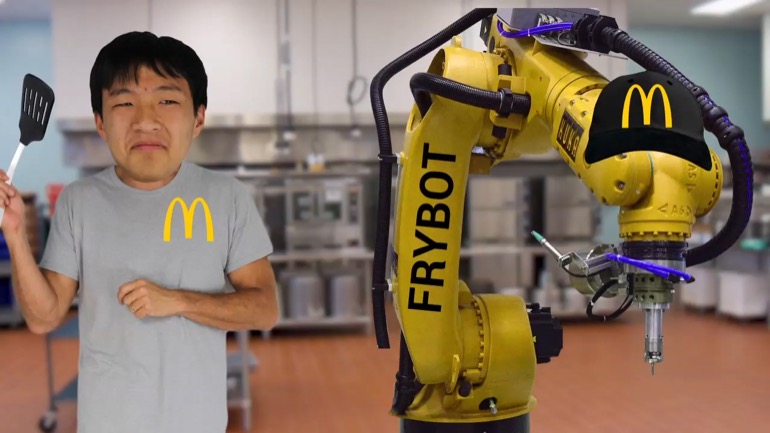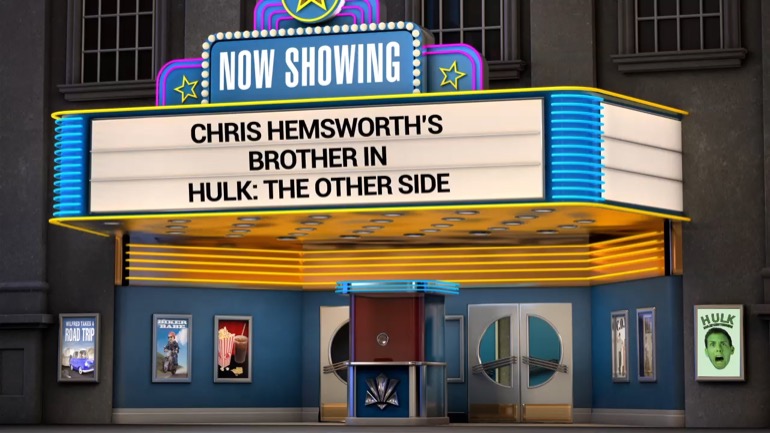ShmoopTube
Where Monty Python meets your 10th grade teacher.
Search Thousands of Shmoop Videos
Econ Videos 79 videos
What is a Production Possibilities Curve? The Production Possibilities Frontier Curve (PPF) is a statistical graphic curve that depicts the compari...
What are Income and Substitution Effects? Income effects reflects the increases or decreases in total consumption of goods and services in proporti...
How Do Companies Add Value? Companies add value by improving the client or customer experience. This can be achieved by offering better quality ser...
Econ: What are Supply Side Economics? 12 Views
Share It!
Description:
What are Supply Side Economics? The idea behind supply side economics is that if consumers have more money to spend (supply) then the demand for goods and services will increase as well. So, by providing tax cuts to individuals who invest and stimulate the economy, it’s expected that they will use these tax savings to spend more money and this will positively affect the economy.
Transcript
- 00:00
and finance Allah shmoop What Our supply side economics All
- 00:08
right people We all know that classic graph the most
- 00:11
famous of all economics crafts showing the upward sloping supply
- 00:15
curve there and the downward sloping demand curve there Yeah
- 00:19
we all know that where supply and demand crosses the
Full Transcript
- 00:22
price there and the quantity where goods can be sold
- 00:26
on the market most efficiently well suppliers supply acts amount
- 00:29
of why goods at ze price and consumers by X
- 00:33
amount of why goods at ze price and yada yada
- 00:36
yada you get the picture There it is If it
- 00:38
takes two to tango and create economic growth both supply
- 00:41
and demand tingling there Why is their supply side economics
- 00:46
and then demand side economics Well it's kind of a
- 00:49
chicken and egg problem Demand siders The trickle up believers
- 00:53
think the economy is driven by consumer demand You know
- 00:56
at the bottom of the economic pyramid I eat you
- 00:58
can't make consumers buy stuff they don't want to buy
- 01:02
For instance way back in the seventeenth and eighteenth centuries
- 01:05
the Brits saw China as a huge market to tap
- 01:08
so they tried to come up with all this stuff
- 01:10
the Chinese people would want to buy But the Chinese
- 01:13
people didn't want any of their British stuff They were
- 01:16
only interested in the silver which they were getting in
- 01:19
heaps since Britain was importing a ton of porcelain tea
- 01:22
spices and silks from China into Europe and depleting themselves
- 01:26
of silver we'LL supply siders The trickle Down Believers believe
- 01:31
the economy is driven by producers who are at the
- 01:34
top of the economic pyramid like they're going to produce
- 01:36
and whatever they produce consumers will buy How will the
- 01:39
economy grow if the people with all the money at
- 01:41
the top aren't investing it into creating and growing a
- 01:45
new businesses The logic is that the head honchos of
- 01:47
the economy I either job creators the entrepreneurs the investors
- 01:52
the visionaries They have a lot of money which can
- 01:54
be either well held onto or invested well The supply
- 01:58
siders theory is that if taxes are high then high
- 02:01
income earners are incentivized to well just sit on their
- 02:04
hands leaving their money to collect dust when it could
- 02:07
be doing something more useful But if taxes are low
- 02:10
on the other hand well then the producers are incentivized
- 02:13
to invest that wealth in the economy or at least
- 02:15
more incentivised and that in theory would create more jobs
- 02:18
and lead more spending and boost economic growth That's the
- 02:22
money trickle down theory from the high income earners to
- 02:25
low income earners Supply siders have a similar theory when
- 02:29
it comes to regulations on all this stuff like higher
- 02:32
capital gains and income tax on high income earners Business
- 02:36
regulations are seen by supply siders to be a disincentive
- 02:39
for that group to invest in economy well Likewise Supply
- 02:43
Sider see monetary policy as reigning on their parade Monetary
- 02:47
policy happens when a central bank tinkers with interest rates
- 02:50
and the money supply and hoping to balance unemployment and
- 02:54
inflation for supply siders the central bank is sticking their
- 02:57
sticky fingers into the natural functioning of the markets where
- 03:01
they don't belong Well the reason we have a central
- 03:03
bank tinkering with things that happens because well the norm
- 03:06
in macro economics today is a bastardized version of Kane's
- 03:09
Ian Theory Kane's Ian's our demand siders So when they
- 03:13
see the economy going into a slump from consumers having
- 03:16
the blues while then those Keane's Ian's think the solution
- 03:19
is government intervention including monetary policy tinkering right But on
- 03:23
the other hand supply siders say Kane's Ian's well have
- 03:26
got it all wrong At the end of the day
- 03:28
the market will always be a mix of both supply
- 03:31
and demand We'LL just keep letting that Adam Smithy and 00:03:34.558 --> [endTime] invisible hand you know do its thing at no
Related Videos
GED Social Studies 1.1 Civics and Government
What is bankruptcy? Deadbeats who can't pay their bills declare bankruptcy. Either they borrowed too much money, or the business fell apart. They t...
What's a dividend? At will, the board of directors can pay a dividend on common stock. Usually, that payout is some percentage less than 100 of ear...
How are risk and reward related? Take more risk, expect more reward. A lottery ticket might be worth a billion dollars, but if the odds are one in...



















































































